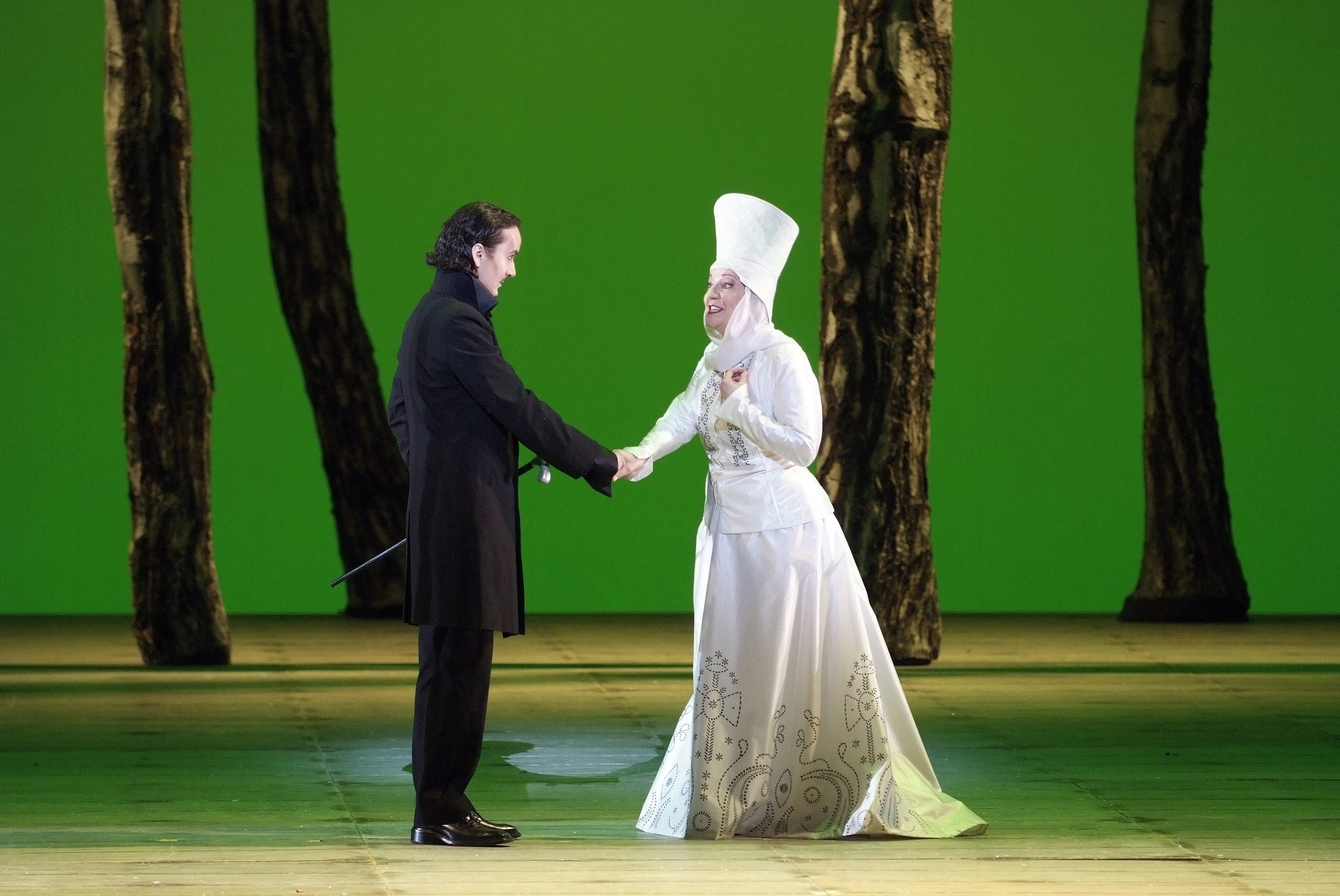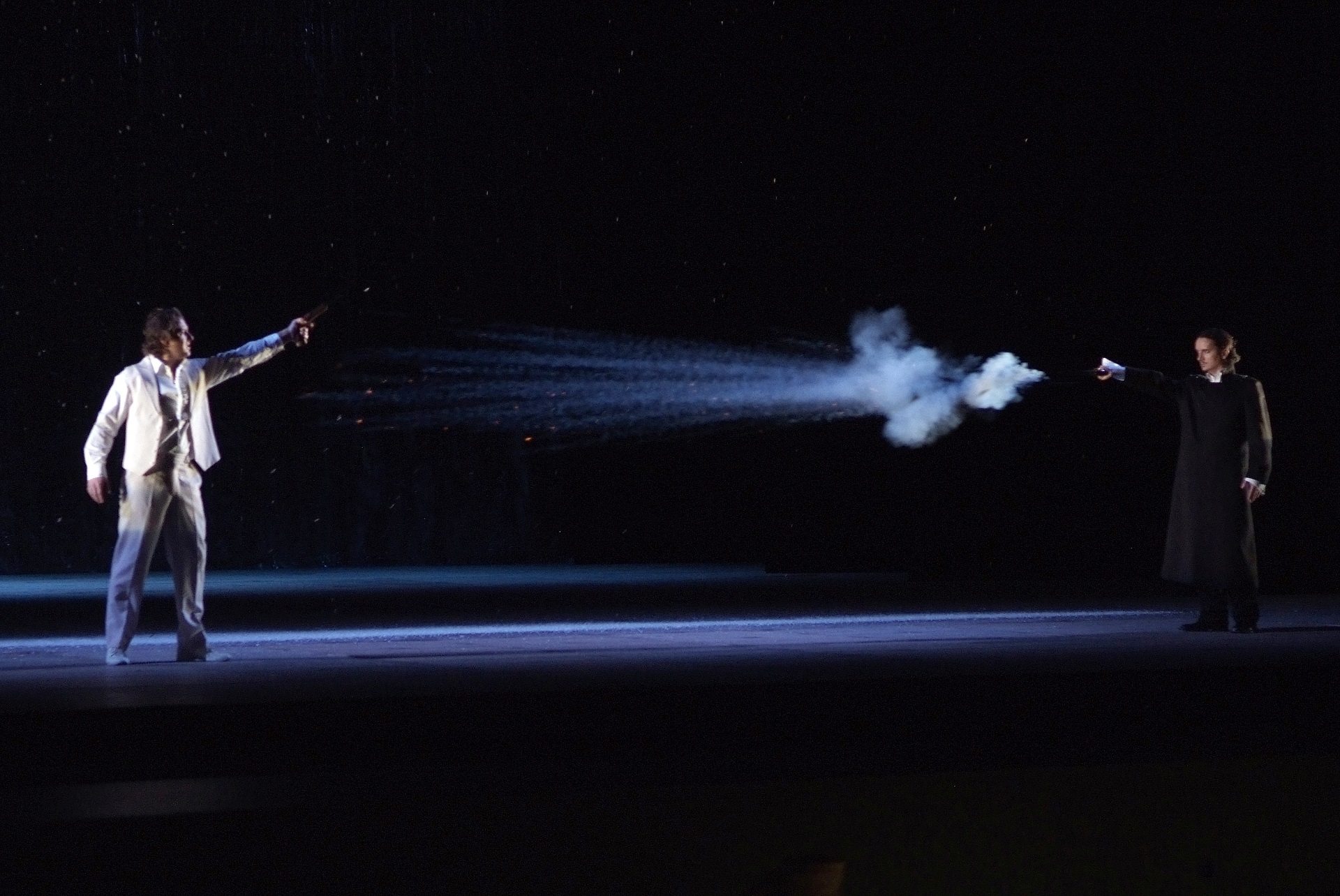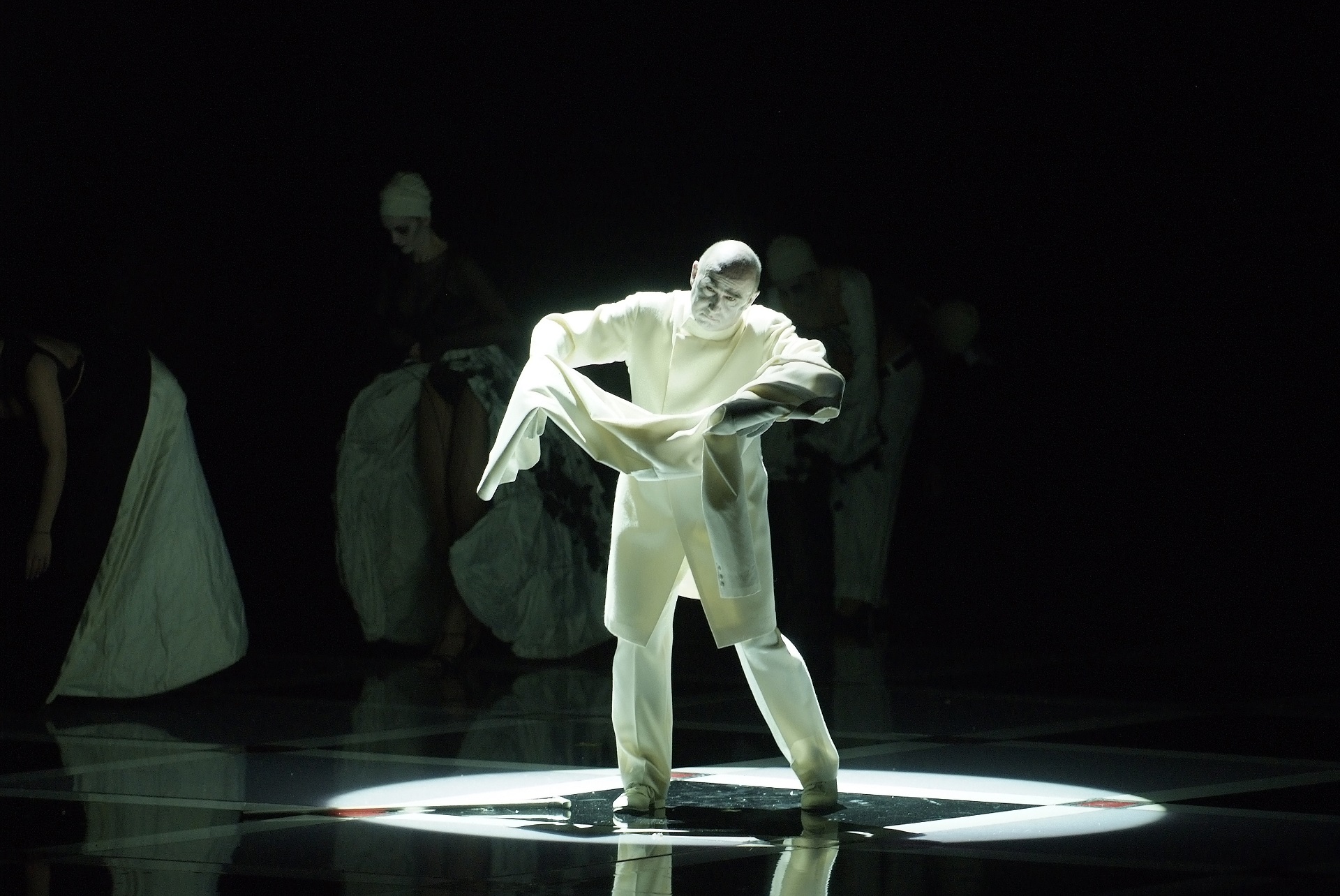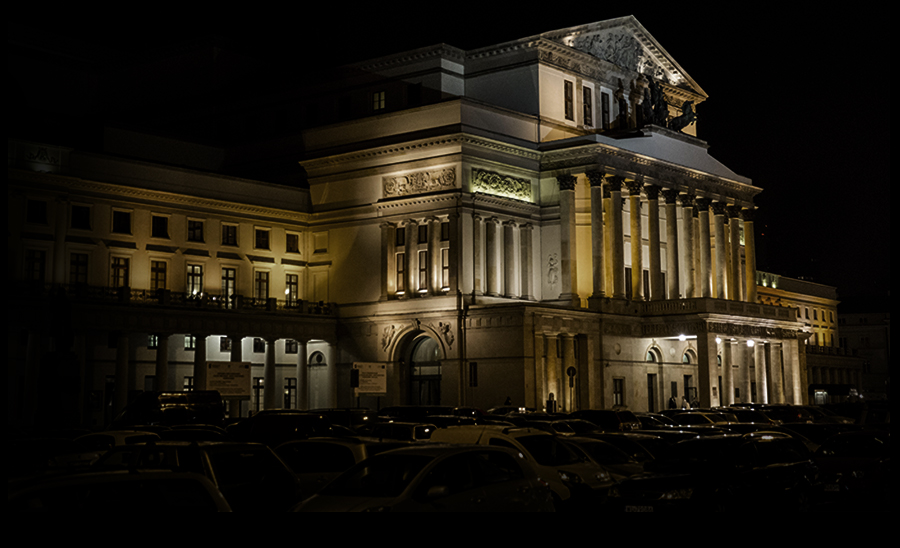
Mesmerised by Pushkin
He fervently looks for inspiration during social gatherings. When a friend, mezzo-soprano Lavrovska, gives him a copy of Pushikn's novel, the composer is reluctant at first. Soon he changes his mind, though. What makes Onegin the right choice is the novel's popularity among the Russia intelligentsia the psychological complexity of the characters which makes it possible to create well rounded characters on stage, just like in Bizet's Carmen. Tchaikovsky is mesmerised by Pushkin. In a letter to his younger brother Modest, he writes: 'I am simply delighted to have been able to free myself from all of the Egyptian princesses, pharaoes, poisoners, and other paper-thin characters. I feel a much closer affinity to the poetry of Onegin'.
 A fully pledged drama
A fully pledged drama
Tchaikovsky's opera is a double drama revolving around four characters, two of which are the piece's most robust protagonists: Tatyana and Eugene. Onegin is a Byronic dandy. A man about town, his narcissist urges set into motion a dreadful machine that annihilates everything that could have given meaning to his superficial existence. Motivated by an overtly displayed sense of superiority, he humiliates Tatyana and causes the death of his closest friend.
He rejects everything that is truly beautiful, falsely assuming that all that the best is still ahead of him. He sentences himself to hell on Earth – his life becomes empty and meaningless. Years later, when hope for redemption and happiness flares up in him, Onegin quickly realises that all has been lost.
A musical masterpiece
Onegin is undoubtedly an operatic masterpiece. Tchaikovsky's music, infused with contrasts, changing tempos, vehemence alternating with lyricism is a perfect reflection of the rich array of emotions experienced by the characters. It resounds with joy and regret, sweetness and longing, passion and agitation, hope and despair. Treliński production highlights anxiety, which is amplified by a demonic, half-dead O*** and a zombie-like fashion show featuring dehumanised, deathly pale figures sporting monochromatic costumes.

The performance to be shown on vod.teatrwielki.pl was filmed at the Palau de les Arts Reina Sofía, Valencia and features a dream team of opera stars headed by excellent Artur Ruciński as Onegin and compelling Kristine Opolais (as Tatyana). 'An ideally well-balanced vocal cast,' wrote Die Welt.
Baritone Mariusz Kwiecień, who sang Onegin in the Warsaw premiere of the timeless production in 2002, told the Polish Press Agency: 'Mariusz Treliński's production is colourful, expressive. It is a fairytale. A beautiful, impressionist tale which could be taking place in France, Russia, or Poland. Treliński's focuses on the story per se, doing away with any historical or ideological references.'
Mariusz Treliński's production of Tchaikovsky's Onegin will be available on vod.teatrwielki.pl until 21 Dec.
Premiere of the production: 5 April 2002, Polish National Opera, Teatr Wielki in Warsaw
Spanish premiere of this production: 22 January 2011, Palau de les Arts Reina Sofía in Valencia
Courtesy of Unitel Classica
Conductor: Omer Meir Wellber
Stage director: Mariusz Treliński
Stage design: Boris Kudlička
Photos: Tato Baeza/Palau de les Arts Reina Sofía






 ''
''